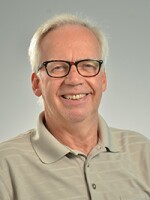The top five men’s tennis players in the world are at least 30 or older. Twenty-four year old Jack Sock of Overland Park is part of the sport’s next generation hoping to change that.
When the U.S. Open Championships begin today, Sock has big ambitions. But in Kansas City where he digs in, Sock isn’t alone in his efforts.
Jack Sock routinely plays against the world’s best. Earlier this year, Sock faced Roger Federer, the eventual winner at Wimbledon this summer. In three matches against Federer, Sock has yet to beat him. But at the age of 35, Federer rarely loses.
It amazes Sock.
“Credit to him and good on him for finding a new gear at 35,” says Sock. “It makes the sport exciting for sure.
Ranked 17th in the world, not only does Sock play against the best, but he practices against them, too, occasionally in Overland Park.
Fresh from reaching the final in a recent ATP Tour stop, Australian Nick Kyrgios slipped into town unnoticed. He’s another top-20 player. “We’ve been to talking to him (about) coming to KC for awhile and (we’re) finally able to make it happen,” says Sock the day before he left for the U.S. Open in New York.
So how will this generation of tennis players, like Sock and the 22-year old Kyrgios, make a dent in the thirtysomethings who’ve dominated the headlines? It starts with assembling a team behind the scenes who help the world class players along in a hectic schedule that mixes constant travel, practice and competition.
“I think everyone keeps an eye on everyone,” says Sock when asked about the other top players’ teams. “It’s pretty standard or normal these days for everyone to have a full team around them.”
Besides Jack Sock’s parents and his older brother, Eric, two others make up the core members of his local team, Mike Wolf and Dr. Michael Monaco. With their help, he believes the best is yet to come.
Sock owns two titles this year. Sock also entered a tournament as a No. 1 seed two times, which is a first, including last month in Atlanta. There, he paired up in doubles with Eric for the first time as a pro. They didn’t win the match, but the scene represented how far the Sock team has come. With Jack’s stock is on the rise, Eric, a teaching pro at the Elite Squad Tennis Academy in Overland Park, lends his support as one of his biggest fans.
That night, their father, Larry, proudly watched from the stands with family relatives. Larry says he and his wife, Pam, tried to raise the boys on an even keel. “It’s interesting watching all the different kids when they’re 10, 11, 12 and 13 growing up and what you think they might—not just my two boys—but a lot of the other kids (and) how they handle both good and bad situations. Hopefully give them some wisdom that not every match is do-or-die,” says Larry Sock.
Jack Sock never lost a match at Blue Valley North, so the likelihood of losing as a pro concerned the Sock parents. “You absolutely don’t know because you know you’re going to lose a whole lot more than you have,” says Larry Sock. “How are you going to handle that? Every player out there is very, very good.”
Jack Sock absorbed his share of lumps on the tour, but that small circle guided him through it. Wolf, one of the Elite Squad directors, recalls the first time he saw Jack Sock play. “He and I laugh about it on a fairly regular basis,” he says. “When he started, he was 12, and he started beating me in baseline games at the club because he loved to compete. And I wanted to help foster that energy he had. We had started to play, and at a young age, I could already see that he had a good sense of the game.”
When Sock returns from the road, Wolf says the stability of Sock’s Kansas City team has been important, “Jack is the CEO of Sock Enterprises, but he definitely is respective of what his parents think, of what I think, what his brother thinks. So I think we’ve got a good, as I think some of the other teams do, a good model.”
Dr. Monaco’s son played tennis with the Sock brothers as kids. As their friendship grew, so did the relationship between Monaco and the Sock parents. Monaco became the team doctor. In his role with the Sock team, Monaco says the medical care is wide-ranging.
“Everything from making sure that he’s healthy, that he has good nutrition, that he has good fluid and electrolytes so he doesn’t cramp on the court and he’s in great physical shape,” says Monaco. “They say it takes a village. In this case, it really does.”
Last year, before Sock’s departure to Rio for the Summer Olympics, Dr. Monaco had some hectic moments when he diagnosed Sock with walking pneumonia. But Sock ended up winning an Olympic gold medal in mixed doubles and a bronze in doubles.
Seeded 13th in the U.S. Open, Sock opens against Jordan Thompson of Australia.
Greg Echlin is a freelance sports reporter for KCUR 89.3.





